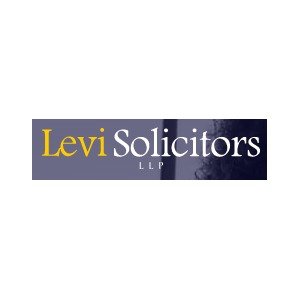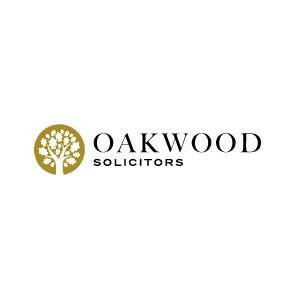Best Nonprofit & Charitable Organizations Lawyers in Leeds
Share your needs with us, get contacted by law firms.
Free. Takes 2 min.
List of the best lawyers in Leeds, United Kingdom
About Nonprofit & Charitable Organizations Law in Leeds, United Kingdom
Nonprofit and charitable organizations in Leeds, United Kingdom, operate in a dynamic legal environment defined by specific laws and regulations. These entities play a crucial role in addressing societal needs by providing services ranging from education and health to environmental advocacy and cultural enrichment. Governing laws ensure that these organizations remain accountable and transparent, enabling them to serve their missions effectively while maintaining public trust.
In the UK, the regulation of charities is primarily overseen by the Charity Commission, which registers and regulates charities in England and Wales to ensure their compliance with charity law. Nonprofits must navigate complex legal frameworks that cover everything from formation and governance to fundraising and taxation.
Why You May Need a Lawyer
There are several circumstances where individuals or organizations may require legal assistance concerning nonprofit and charitable organizations:
- Formation and Registration: Establishing a nonprofit requires drafting articles of association, understanding charitable purposes, and navigating the registration process with relevant authorities like the Charity Commission.
- Governance and Compliance: Legal advice ensures ongoing compliance with statutory obligations, including filing annual returns and adhering to the correct governance structures.
- Taxation: Despite generally favorable tax treatment for charities, understanding VAT, Gift Aid, and tax exemptions can be complex, often necessitating expert guidance.
- Employment Law: Nonprofits, like any other sector, need to comply with employment laws affecting staff and volunteers, including contracts, pensions, and rights.
- Property and Contract Assignments: Legal expertise is crucial when leasing office space, entering contracts, or purchasing property for operational use.
- Intellectual Property: Protecting the organization’s name, logo, and creative outputs often requires legal advice on intellectual property rights.
Local Laws Overview
While the Charity Commission provides the broad regulatory framework, certain local aspects may influence how charities and nonprofits operate in Leeds:
- Local Authority Regulations: Leeds City Council may impose additional regulations, especially concerning fundraising activities, events, and service delivery.
- Licensing: For events, local licensing laws determine where and when events can be held, often requiring specific permissions from the council.
- Planning Permissions: Any modification or long-term use of property for nonprofit purposes may require planning permission from the local government.
- Health and Safety: Local laws may enforce additional health and safety regulations that nonprofits must adhere to, especially for events and volunteer operations.
Frequently Asked Questions
What is the difference between a nonprofit and a charity?
A nonprofit organization does not distribute its surplus funds to owners or shareholders and typically reinvests them back into the mission. A charity is a specific type of nonprofit that provides public benefit and is registered with the Charity Commission.
How do I register a charity in Leeds?
To register a charity, you must apply to the Charity Commission, demonstrating that your organization has a charitable purpose and public benefit. You will need to draft governing documents and provide information on trustees.
Are there specific fundraising rules for charities in Leeds?
Yes, fundraising activities are regulated to ensure ethical practices. This includes adhering to the Fundraising Regulator's Code of Fundraising Practice and obtaining licenses for certain types of fundraising activities.
Can nonprofits engage in political activities?
Charities can engage in political activities if it furthers their charitable purposes. However, they must remain non-partisan and not exist solely to pursue a political cause.
Do charities pay taxes in the UK?
Charities benefit from various tax exemptions, such as not paying Corporation Tax on certain income and capital gains, and they can claim Gift Aid on donations.
What are the trustee responsibilities in a charity?
Trustees are responsible for the charity's governance, financial oversight, strategic direction, and legal compliance. They must act in the charity's best interest at all times.
How often must a charity submit accounts to the Charity Commission?
Charities are required to submit annual returns, including financial statements, to the Charity Commission. The deadline depends on the charity’s structure and income level.
What is Gift Aid, and how can it benefit my charity?
Gift Aid is a government scheme allowing charities to reclaim tax on donations made by UK taxpayers, effectively increasing the donation's value at no extra cost to the donor.
Can a nonprofit have paid employees?
Yes, nonprofits can have paid employees for operational purposes, and they must comply with employment law regarding contracts, wages, and workplace rights.
What legal obligations do nonprofits have concerning personal data?
Nonprofits must comply with the UK General Data Protection Regulation (UK GDPR), which includes obtaining consent, securing data, and providing transparency.
Additional Resources
For more detailed information and guidance, consider consulting the following resources:
- Charity Commission: The regulatory body for charities providing guidance and resources.
- Leeds City Council: Provides local regulatory information and necessary permissions for operations in Leeds.
- Fundraising Regulator: Offers the Code of Fundraising Practice which nonprofits must adhere to when raising funds.
- The National Council for Voluntary Organizations (NCVO): Offers resources and support for nonprofits across the UK.
- Community Accountancy Services (CAS): Specializes in accounting services for community groups and charities.
Next Steps
If you need legal assistance in the nonprofit and charitable sector, consider the following steps:
- Consult a Specialist Lawyer: Seek advice from a lawyer specializing in charity law to guide you through complex legal requirements.
- Conduct Research: Gather as much information as possible about your legal needs and potential advisors to make an informed decision.
- Prepare Necessary Documents: Compile all relevant documents and information related to your nonprofit's operations before your legal consultation.
- Contact Relevant Authorities: Reach out to the Charity Commission or local councils for guidance on compliance and regulations.
- Collaborate with Legal Aid Services: Investigate if you qualify for any legal aid services that could support your nonprofit’s legal requirements.
Lawzana helps you find the best lawyers and law firms in Leeds through a curated and pre-screened list of qualified legal professionals. Our platform offers rankings and detailed profiles of attorneys and law firms, allowing you to compare based on practice areas, including Nonprofit & Charitable Organizations, experience, and client feedback.
Each profile includes a description of the firm's areas of practice, client reviews, team members and partners, year of establishment, spoken languages, office locations, contact information, social media presence, and any published articles or resources. Most firms on our platform speak English and are experienced in both local and international legal matters.
Get a quote from top-rated law firms in Leeds, United Kingdom — quickly, securely, and without unnecessary hassle.
Disclaimer:
The information provided on this page is for general informational purposes only and does not constitute legal advice. While we strive to ensure the accuracy and relevance of the content, legal information may change over time, and interpretations of the law can vary. You should always consult with a qualified legal professional for advice specific to your situation.
We disclaim all liability for actions taken or not taken based on the content of this page. If you believe any information is incorrect or outdated, please contact us, and we will review and update it where appropriate.











